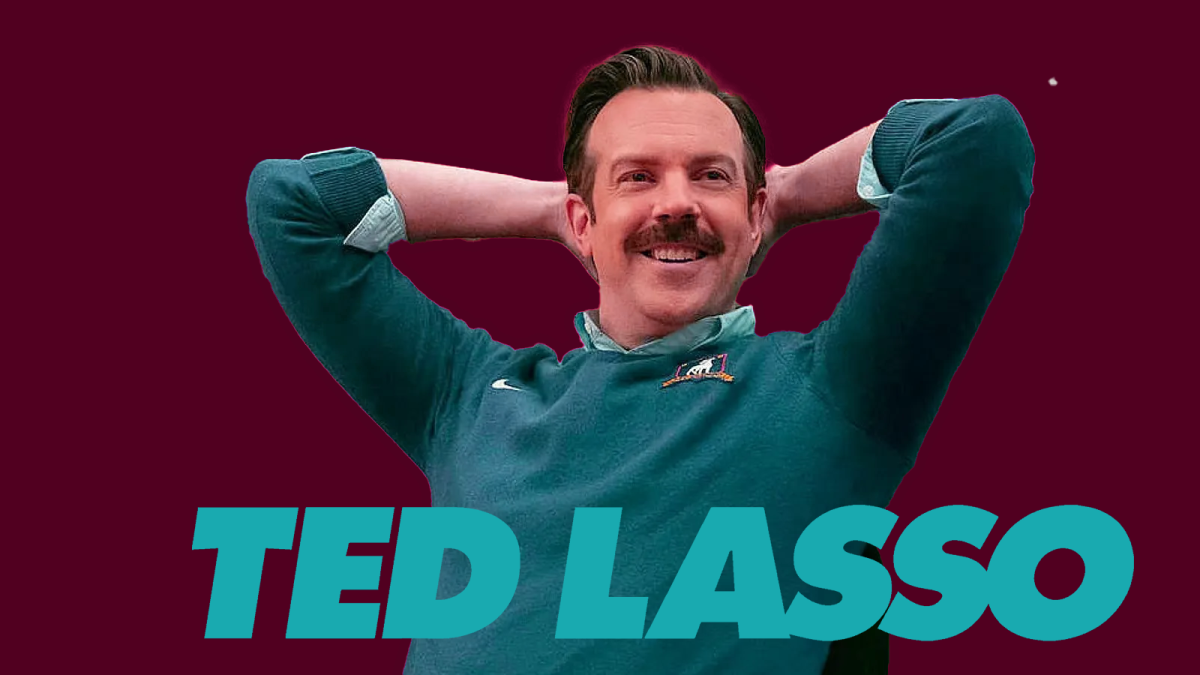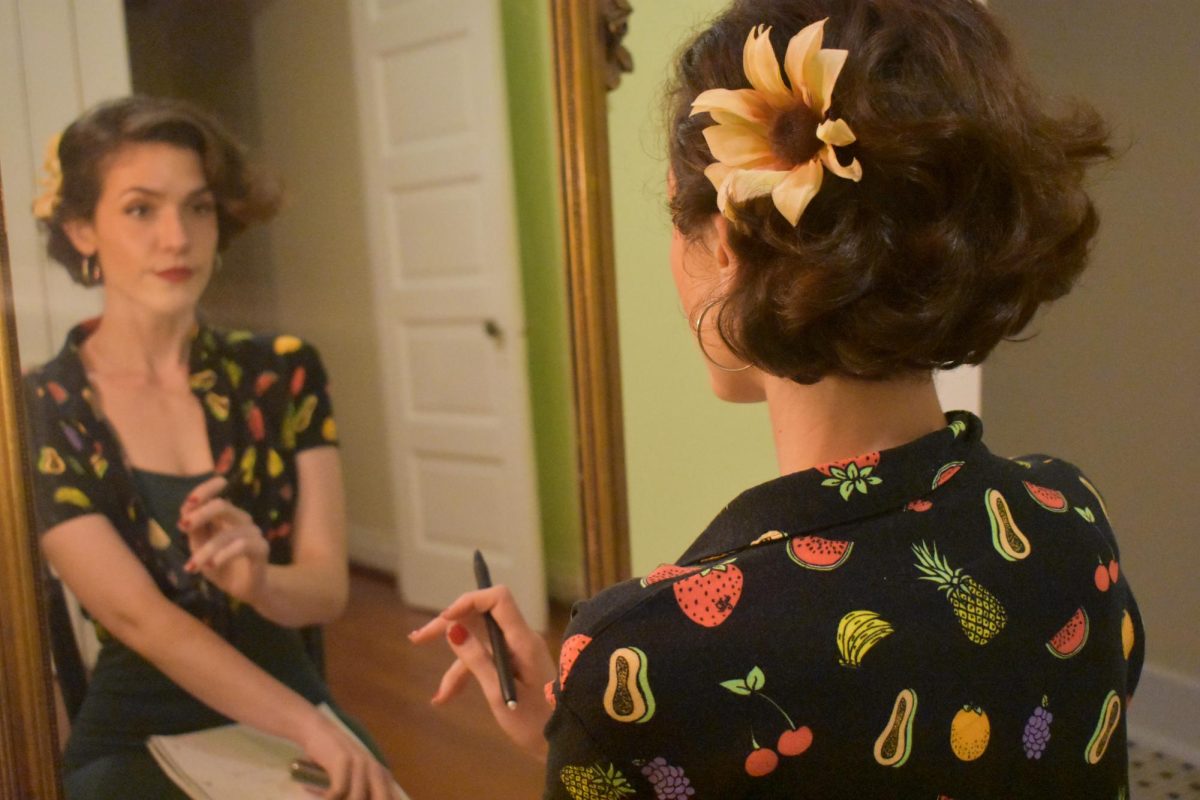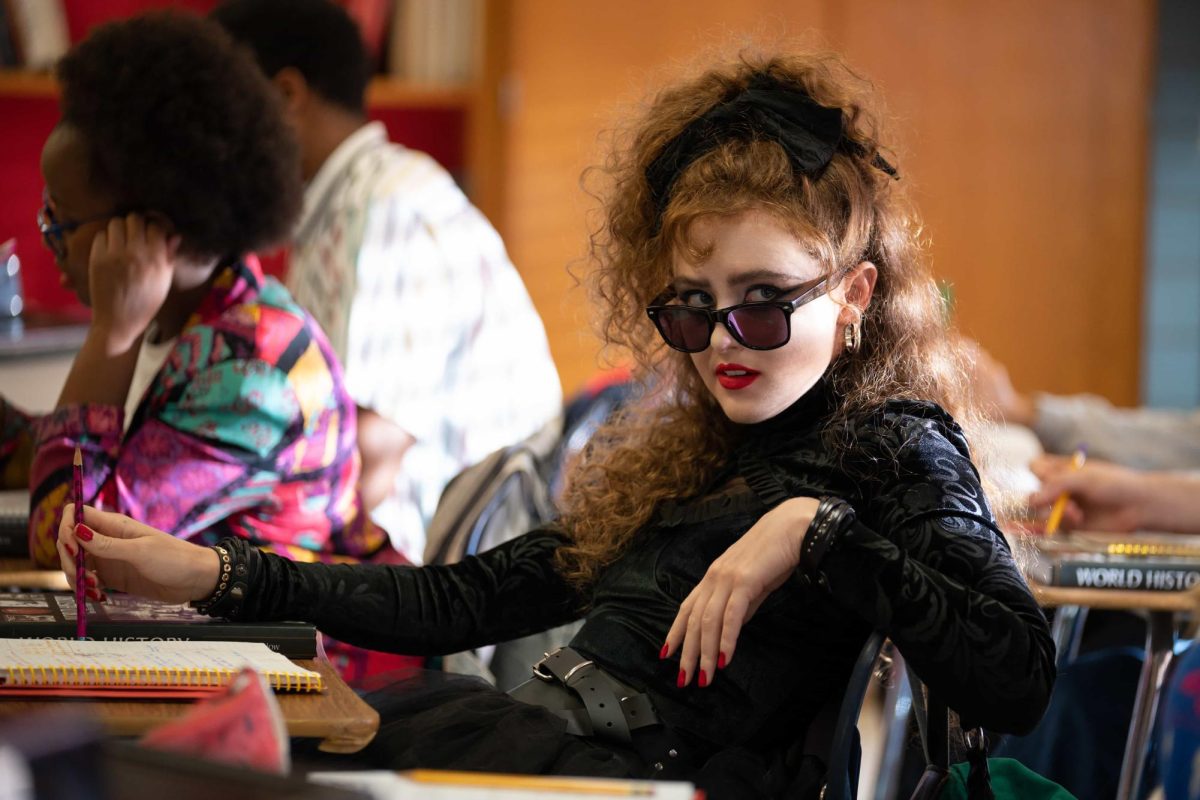Unlike recent Netflix originals, Apple TV Original “Ted Lasso” retains all the elements of a high-quality, original, and entertaining series. This series came to a wrap in May with its third and final season, and it hurts to say goodbye to all the loveable characters.
“Ted Lasso” is about an American football coach (Jason Sudeikis) who moves to London to coach a soccer team. Although he has no experience with what Brits refer to as “football”, Lasso is a ray of sunshine with a mustache, a midwestern accent, and an endless library of dad jokes to warm up the cloudy British atmosphere. While everyone expects him to fail, his way of coaching the team –not just as athletes but as individuals –helps change them for the better. Just like Lasso, this series is filled with positivity–it’s nearly syrupy sweet. It makes a locker room of men feel like one of the most warm and welcoming places. Awesome female characters also play a large role.
Although it seems like a light watch at first, we get glimpses of the characters’ deeper struggles in season one, and things take a darker turn in season two. Now, in season three, Lasso and the team are faced with serious obstacles. As loveable as the protagonists are, the antagonists that become more involved in this season have the ability to make you coil and really get on your nerves, as well-written antagonists should. A plot of ups and downs drags us till the very end to figure out whether Richmond’s path is going downhill, or if it’s just a very steep uphill. They are a team of underdogs that you just can’t help but root for.
From beginning to end, each episode is peppered with jokes and funny instances that are sure to get at least a few hums of amusement. Because the comedic aspect can’t outshow the dramatic plot, especially in season three, it’s not the kind of stuff that can get you laughing ’till it hurts. It’s so obvious when they’re trying to make a joke that there’s nothing subtle to it.
Similarly, Lasso effortlessly slips feminist remarks such as “woman up” and referring to God as “She,” and while these things are great to hear, they just aren’t as effortless as the writers make it seem for this middle-aged American man. One factor is that Lasso’s character is designed to have many great lines, from his dad jokes to his pep talks, but they obviously come from a team of writers in a meeting room, not the individual human that Lasso is supposed to be. In contrast, other good male characters in the show are completely appropriate towards women without going over-the-top.
The final episode is a long, drawn-out goodbye which is satisfying for the most part. Lasso leaves Richmond a better team than when he found it. The end both ties things up and leaves room for new paths that the characters can continue to grow in. A key theme here is about men getting in touch with their feelings, and it’s really sweet to watch them bond. With Lasso’s coaching over these three seasons, they have learned how to deal with the hardest parts of life, all while keeping a good attitude.
“Ted Lasso: S3” is now available on Apple TV.




















